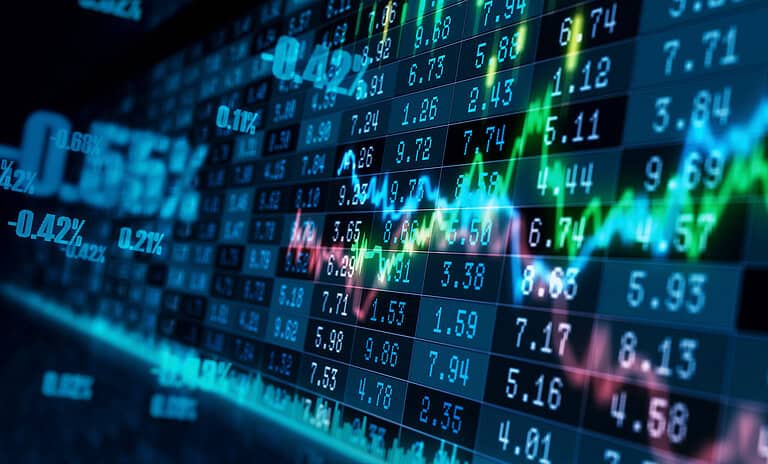Last year, investment bankers fondly recalled to Global Finance the glory of 2021 when deal values enjoyed a peak of more than $5 trillion. The 24-month stretch that followed can best be summed up as a dud. Financial advisers saw M&A activity dwindle in 2023 to its lowest level in a decade.
For Thomas Smale and other M&A professionals, there was one main reason as to why deal pros saw far fewer mandates: interest rates. “High interest rates in 2023 impacted everything,” says Smale, CEO at FE International.
Higher borrowing costs and lower valuations meant a quieter year for mergers, acquisitions and initial public offerings (IPOs). Plus, a tighter credit market and increased scrutiny from lenders reduced debt leverage. Transactions simply couldn’t get funding. “Inflation, regulatory scrutiny, and geopolitical uncertainties only compounded these challenges,” Smale adds.
For the first nine months of 2023, data firm Dealogic tallied just 26,608 transactions across the globe. That’s a 29% decline in volume compared with the same period from 2022. For the full year, total M&A value hovered at just above $2.5 trillion.
A total of 1,429 companies went public in 2023. That’s the lowest number of IPOs since 2019, a nearly 16% drop from 2022, and just over 40% of the amount launched in 2021. Per S&P Global, there was just under $25 billion offered globally in the fourth quarter of 2023 and just over $120.3 billion offered throughout the year.
Investment banks cashed in on IPOs mostly in the Asia-Pacific (APAC) region, according to Pricewaterhouse Coopers. APAC proceeds remained the highest for the second consecutive year, with 737 IPOs raising $73.1 billion—accounting for over half of the global IPO proceeds.
In terms of which country contributed the most to global IPO proceeds, China maintained its top rank from 2022 when it surpassed the US.
The EMEA (Europe, Middle East, and Africa) region accounted for 20% of the global IPO proceeds in 2023. Almost half of the money raised came from the Middle East, followed by Turkey and Germany contributing 14% and 10%, respectively.
From Bad To Worse
Big banks started 2023 off with a bleak scenario when both Silicon Valley Bank and New York’s Signature Bank collapsed. Afterward, crypto lender Silvergate liquidated. And when First Republic nearly folded, a consortium of banks rescued it. UBS subsequently saved Credit Suisse from a similar fate. Fear quickly spread of a so-called contagion among troubled banks.
For the remainder of the year, companies desired growth but were extra cautious about where to source capital. Many companies opted to borrow from non-bank lenders, or firms that use private equity to issue debt rather than tap into customer deposits.
As a result, private debt and capital specialists siphoned business away from traditional bank lenders. This peeved JPMorgan Chase CEO Jamie Dimon who, in December, griped to Congress, about the trend, calling it “the next brewing crisis.” “Private market players,” he claimed, “act transactionally as counterparties, not partners.”
Other observers arguedjust the opposite. “Private debt funds stepped up and acted more like a partner than just a lender,” private equity firm Acharya Capital Partners told Global Finance last year. Private debt funds, PitchBook reported, raised $95 billion during the first half of 2023, exceeding 2022’s first-half total, and were on pace to raise $200 billion by the end of the year.
Despite the lull in deal activity, with the contentious back-and-forth between investment banks and non-banks, competition remained fierce—especially within sectors that bore fruit. Law firm Morrison & Foerster determined that the technology industry accounted for 27% of M&A value. Cybersecurity and artificial intelligence (AI) were among the busiest subsectors when it comes to “strong dealmaking opportunities.”
Arm, the chip designer owned by SoftBank Group, was the year’s biggest IPO, priced at $51 per share, for a valuation of $54 billion. And two of the biggest price tags on the M&A front were Broadcom’s $69 billion acquisition of VMWare and Cisco’s purchase of Splunk for $28 billion. Both transactions took well over a year to close.
Healthcare also performed well, not just in North America—where it was the third-highest sector by volume—but also in APAC, where it enjoyed its highest value level ever. Among the biggest closings that occurred include Pfizer’s $43 billion takeover of Seagen, a deal advised by Guggenheim Securities, as well as Merck’s $22 billion deal with Tokyo-based Daiichi Sankyo to develop cancer treatments.
Of the deals that involved private equity sponsors, volume dropped 33% while value plummeted 41% year-over-year. Still, Pitchbook points out a silver lining: 2023 was a strong year for private equity-led deals in which companies were taken private.
While activity didn’t reach the highs of 2021 and 2022, there was a steady stream of smaller deals and a handful of large buyouts. That’s because, in the face of rising interest rates, tightening credit markets, and other headwinds, sponsors adjusted their approaches to dealmaking.
“Private equity firms have been able to pivot,” he adds. Gone are the days where target valuations had to have nine-figure price tags. Anything less, “they would have laughed us out of the room,” Smale says. “Today, they have to be scrappier — trying moments create innovation and that’s exciting to witness.”
As for what bankers should expect for 2024? “There is a lot of optimism in 2024 with hopes that interest rates will drop,” Smale says. “Plus, as expectations around valuations continue to narrow between buyers and sellers, there’s hope the frequency of deal-making should continue.”
One notable trend in 2023 that will likely continue in the next few quarters was that nearly every major bank opted to slash overhead—especially in the US where roughly 20,000 investment bank employees were laid off since the start of 2023. The biggest drops occurred at Goldman Sachs and Wells Fargo, the latter of which cut its workforce by 50,000 in the last three years.
Until we get the full picture of what 2024 entails, let’s recognize what financial institutions accomplished over the previous 12 months. This year’s competition examined data from more than 100 countries and territories representing all the regions of the globe. However, we selected winners from only 66 countries and territories.
Read on for Global Finance’s 25th annual awards for Best Investment Banks.
Research and analysis were executed by Thomas Monteiro, John Njiraini, David Sanders and Lyndsey Zhang, who reviewed entries as well as other information. Global Finance editors reviewed their assessments and made the final selections. Corporate Finance Editor Anthony Noto served as lead editor. Monteiro, Sanders and Zhang wrote the following pages; their individual contributions are indicated by initials.
Methodology: Behind the Rankings
Global Finance editors and researchers, with input from a range of executives, investors and consultants worldwide, used a series of criteria to select the winners of these awards, including market share, number, size and complexity of deals, service and advice, structuring capabilities, distribution network, efforts to address market conditions, innovation, aftermarket performance of underwritings and market reputation. We use information provided by the banks, as well as material gathered from other sources, to score and select winners based on a proprietary algorithm. Deals announced or completed in 2023 were considered. In the review process, Global Finance considers the full spectrum of banks, from relatively small ones in frontier markets to global banks that lead the league tables.
Many winners submit, in support of their applications, information and perspectives that may not be publicly available. Banks that do not submit entries can still be selected as winners through Global Finance’s review process. However, experience shows that banks that submit entries, with detailed explanations of differentiation in services for corporate clients as compared with peers, achieve better results. Global Finance adheres to journalistic best practices for protecting the confidentiality of information.
More from the 2024 Best Investment Bank Awards












